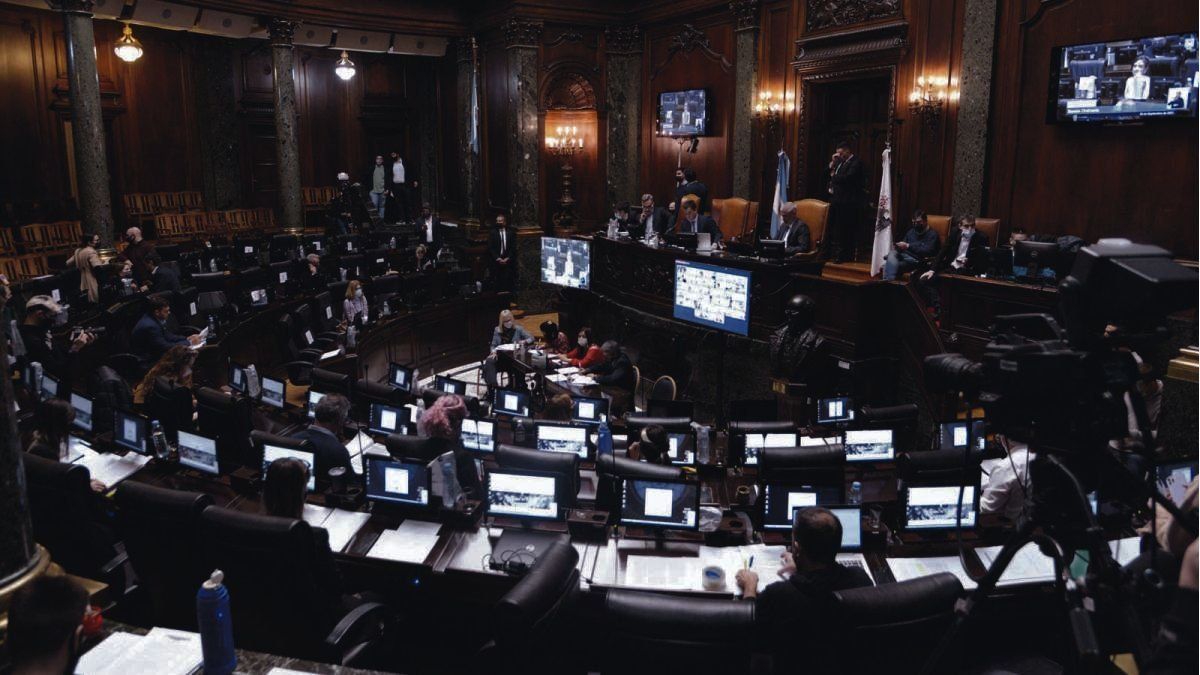From the Buenos Aires ruling party, the Minister of Treasury and Finance, Martín Mura, said that it is a budget with “zero deficit”, since revenues will be $2.164 billion, slightly higher than expenses.
When presenting the project in the Legislature, the minister also pointed out that “it is a budget without an increase in taxes or the creation of new taxes” and a “30% drop in terms of the weight of interest on the debt.”
In addition, he stated that the level of public works is recovering after the Covid-19 pandemic, reaching a 15% share of total expenses next year.
Mura emphasized that the budget’s macroeconomic variables “arise from the estimates set by the national government,” which project a “growth of the Gross Geographic Product of 2%, an inflation rate in the order of 60% and a dollar at $269.9 by the end of the year”.
In his presentation before the Legislature, Mura also reiterated the claim for the “untimely and unilateral removal of Federal Co-participation funds” by the national government, and argued that for this reason, in 2023, the city of Buenos Aires will face a “$279 billion resource loss”.
The Buenos Aires budget for next year is the last of the Rodríguez Larreta administration, which ends its term in December 2023.
La Libertad Avanza advanced its vote
The five deputies of the bloc chaired by Ramiro Marra confirmed their negative vote on Larreta’s budget in this afternoon’s session in the Buenos Aires Legislature.
“The government is going to collect 23% more than last year and it doesn’t even occur to them to think about how to lower taxes on the taxpayer, the only thing they think about is how they are going to spend that money. Instead of continuing to make useless and unnecessary could try to relieve the private sector a little, which is having a worse time, “said Ramiro Marra, the president of Javier Milei’s bloc.
They also noted the high number of public sector employees in the city, this being the highest (63 per thousand inhabitants) among the most populous districts.
Another argument is the exorbitant amount that the cost per inhabitant represents, reaching $668,000 per person. A budget per capita much higher than in the most populated provinces, such as Santa Fe, Mendoza and Buenos Aires.
Regarding the compensation for the removal of the co-participation, it is claimed that the only way that the City government found to recover that money was by raising taxes and taking on debt, far from proposing a real adjustment of the expenses of the policy.
Lastly, adherence to the estimate of inflation provided by the national government, which is 60%, is questioned, a number very far from the annual 100% to which the country’s inflation is directed. “The budget with that estimate does not make any sense,” they closed.
Source: Ambito
David William is a talented author who has made a name for himself in the world of writing. He is a professional author who writes on a wide range of topics, from general interest to opinion news. David is currently working as a writer at 24 hours worlds where he brings his unique perspective and in-depth research to his articles, making them both informative and engaging.




